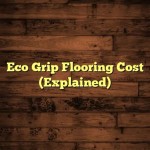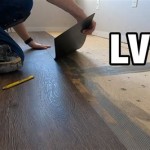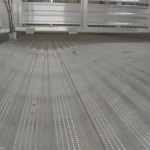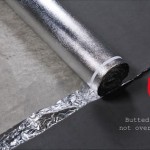Average Cost of Flooring Per Square Metre: A Comprehensive Guide
Selecting the right flooring is a crucial decision in any construction or renovation project. The choice impacts the aesthetic appeal, functionality, and overall value of the property. However, navigating the diverse range of flooring options and their associated costs can be challenging. This article provides a detailed overview of the average cost of flooring per square metre, examining various materials, installation factors, and potential hidden expenses.
The cost of flooring is influenced by a multitude of factors, making it essential to understand the intricacies involved in pricing. Material type is the primary driver of cost, with options ranging from budget-friendly laminate to luxurious hardwood. Installation costs also vary significantly depending on the material and the complexity of the job. Furthermore, regional variations in labour rates and material availability can impact the final price. This article aims to provide a comprehensive understanding of these factors, enabling informed decision-making when selecting flooring.
The information presented here should serve as a general guideline. Actual costs may vary based on specific project requirements, location, supplier pricing, and contractor fees. Seeking multiple quotes from reputable flooring contractors is crucial to obtain accurate and competitive pricing tailored to individual needs.
Key Point 1: Breakdown of Flooring Material Costs
The type of flooring material selected significantly impacts the overall cost per square metre. Different materials offer varying levels of durability, aesthetics, and ease of maintenance, influencing their price points. Below is a breakdown of common flooring materials and their corresponding average costs per square metre:
Laminate Flooring: Laminate is a popular choice for budget-conscious homeowners due to its affordability and versatility. It is a synthetic material designed to mimic the appearance of wood, stone, or tile. The average cost of laminate flooring ranges from £10 to £30 per square metre for the material alone. Installation costs typically add an additional £10 to £20 per square metre, bringing the total cost to between £20 and £50 per square metre. Laminate is relatively easy to install, contributing to lower installation costs compared to other materials. Higher-quality laminate options with enhanced durability and realistic designs will command a higher price.
Vinyl Flooring: Vinyl flooring is another cost-effective option known for its water resistance and durability. It is available in various forms, including sheet vinyl, vinyl tiles, and luxury vinyl planks (LVP). Sheet vinyl is generally the most affordable, while LVP offers a more realistic wood or stone appearance. The average cost of vinyl flooring ranges from £15 to £40 per square metre for the material. Installation costs vary depending on the type of vinyl and the complexity of the installation, typically ranging from £10 to £25 per square metre. Overall, the total cost of vinyl flooring can range from £25 to £65 per square metre. LVP, with its enhanced aesthetic qualities and ease of installation (often click-lock systems), is often more expensive than sheet vinyl.
Engineered Wood Flooring: Engineered wood flooring provides the look and feel of solid hardwood at a lower cost. It consists of a thin layer of hardwood veneer bonded to a core of plywood or fiberboard. This construction makes it more resistant to moisture and warping than solid hardwood. The average cost of engineered wood flooring ranges from £30 to £80 per square metre for the material. Installation costs can vary depending on the installation method (e.g., floating, glue-down, nail-down) and the complexity of the job, typically ranging from £20 to £40 per square metre. Therefore, the total cost of engineered wood flooring can range from £50 to £120 per square metre. The thickness and quality of the hardwood veneer will significantly impact the material cost.
Solid Hardwood Flooring: Solid hardwood flooring is a premium option that adds significant value and aesthetic appeal to a property. It is made from a single piece of hardwood, offering exceptional durability and longevity. However, it is also more susceptible to moisture damage than engineered wood. The average cost of solid hardwood flooring ranges from £40 to £100+ per square metre for the material. Installation costs are typically higher than engineered wood, ranging from £30 to £50 per square metre due to the need for specialized tools and techniques. As a result, the total cost of solid hardwood flooring can range from £70 to £150+ per square metre. The type of wood (e.g., oak, maple, walnut), its grade, and the finish will all affect the price.
Tile Flooring: Tile flooring is a durable and versatile option suitable for various applications, including kitchens, bathrooms, and hallways. It is available in a wide range of materials, including ceramic, porcelain, and natural stone. Ceramic tile is generally the most affordable, while porcelain and natural stone tiles are more expensive. The average cost of tile flooring ranges from £20 to £80+ per square metre for the material. Installation costs can vary significantly depending on the size and type of tile, the complexity of the pattern, and the preparation required. Installation costs typically range from £25 to £60 per square metre. Consequently, the total cost of tile flooring can range from £45 to £140+ per square metre. Larger format tiles often require more experienced installers, increasing labour costs.
Carpet Flooring: Carpet provides warmth and comfort underfoot, making it a popular choice for bedrooms and living rooms. It is available in various materials, including nylon, polyester, wool, and olefin. Nylon is generally the most durable and stain-resistant, while wool is a natural and luxurious option. The average cost of carpet flooring ranges from £15 to £50+ per square metre for the material. Installation costs typically range from £10 to £20 per square metre, including the cost of underlayment. Therefore, the total cost of carpet flooring can range from £25 to £70+ per square metre. The pile height, density, and fiber type all influence the material cost.
Key Point 2: Factors Influencing Installation Costs
Installation costs are a significant component of the overall flooring expense. Several factors can influence the cost of installation, including the complexity of the job, the condition of the subfloor, and regional labour rates.
Subfloor Preparation: The condition of the subfloor is crucial for a successful flooring installation. An uneven or damaged subfloor can lead to problems with the new flooring, such as cracking, warping, or squeaking. Subfloor preparation may involve levelling, repairing cracks, or installing a new underlayment. The cost of subfloor preparation can range from £5 to £30 per square metre, depending on the extent of the work required. Ignoring subfloor issues can lead to more costly repairs down the line.
Complexity of Installation: Intricate patterns, custom cuts, or installations in difficult areas (e.g., stairs, bathrooms) can increase installation costs. Installing flooring in a small, oddly-shaped room will typically cost more per square metre than installing it in a large, rectangular room. Complex patterns, such as herringbone or chevron, require more time and skill, leading to higher labour costs.
Removal of Existing Flooring: Removing existing flooring can add to the overall cost, especially if the old flooring is difficult to remove or contains asbestos. Asbestos removal requires specialized equipment and training and can be quite expensive. The cost of removing existing flooring can range from £5 to £20 per square metre, depending on the type of flooring and the complexity of the removal.
Regional Labour Rates: Labour rates for flooring installers vary depending on the region. Areas with a higher cost of living typically have higher labour rates. Obtaining quotes from multiple contractors is crucial to ensure competitive pricing and to get a clear understanding of the local labour market.
Additional Materials: In addition to the flooring material itself, other materials may be required for installation, such as adhesive, grout, underlayment, and trim. These materials can add to the overall cost of the project. It's important to factor in the cost of these materials when budgeting for flooring installation.
Key Point 3: Potential Hidden Costs
Beyond the obvious costs of materials and installation, several potential hidden costs can impact the overall flooring budget. It's essential to consider these potential expenses to avoid unexpected surprises.
Moving Furniture and Appliances: Moving furniture and appliances out of the room before installation and back in afterwards can be a significant undertaking. Some flooring contractors may include this service in their installation fee, while others may charge extra. If self-moving is considered, factor in time and potential for damage. Hiring professional movers may be necessary for larger or heavier items.
Waste Disposal: Disposing of old flooring and construction debris can incur additional costs. Some contractors may include waste disposal in their quote, while others may charge extra. Check local regulations regarding waste disposal and recycling, as these may impact the cost.
Unexpected Repairs: During installation, unforeseen problems may arise, such as hidden damage to the subfloor or plumbing issues that require immediate attention. These unexpected repairs can add to the overall cost. Having a contingency fund in the budget can help cover these unexpected expenses.
Sealing and Finishing: Some flooring materials, such as natural stone and unfinished hardwood, require sealing or finishing after installation. These additional steps can add to the overall cost. Ensure the chosen flooring material is adequately protected to maintain its appearance and durability.
Maintenance Costs: While not an upfront cost, ongoing maintenance should be considered. Some flooring materials require more frequent and specialized cleaning than others. Understanding the maintenance requirements of the chosen flooring material can help budget for future expenses.
In conclusion, determining the average cost of flooring per square metre requires careful consideration of various factors, including the type of material, installation complexities, and potential hidden costs. Thorough research and obtaining multiple quotes from reputable contractors are essential steps in making an informed decision that aligns with budget and aesthetic preferences. By understanding these factors, property owners can confidently navigate the flooring selection process and achieve the desired outcome for their projects.

Average Hardwood Flooring S In 2024 Forbes Home

How Much Is Flooring New Cost Guide 2024

How Much Is Flooring New Cost Guide 2024

Laminate Flooring Cost Average Floorboard S Per Square Metre Foot

Average Flooring Per Sq Ft In 2024 By Experts

Laminate Flooring Cost Average Floorboard S Per Square Metre Foot

The Average Cost Of Hybrid Flooring Per Square Metre Room Entire House

How Much Is Flooring New Cost Guide 2024

How Much Should Wooden Flooring Cost In 2024 Checkatrade

Laminate Flooring Average Cost Per Square Metre Installation Room House
Related Posts








